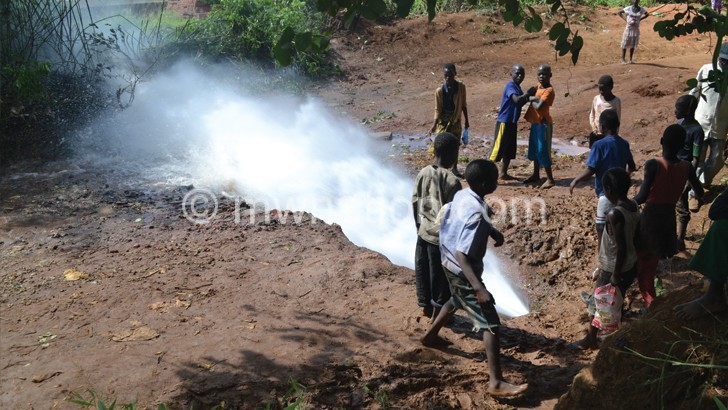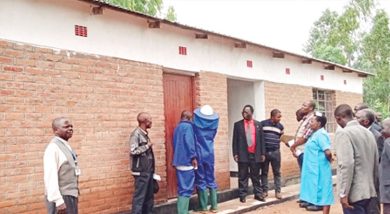Water boards tipped on efficiency, LWB gets grant
Water boards, especially those operating in cities, need more financial and technical support from government and donors to invest in infrastructure and graduate to a level where they can consistently supply high-quality water to residents, a commentator has suggested.
Social commentator Rafiq Hajat said in an interview yesterday it was worrying that after 54 years of independence, the country’s water boards struggle to achieve full capacity to supply residents with potable water throughout the year.

His comments coincided with a grant signing ceremony between the governments of Malawi and Japan in Lilongwe yesterday in a project aimed at reducing non-revenue water which is costing the Lilongwe Water Board (LWB) about K4 billion a year.
Non-revenue water is water that is produced but does not generate revenue for the utility, either because of burst pipes, vandalised equipment, unauthorised consumption through illegal connections and inaccurate metering.
“My worry is that our water boards generally have archaic systems that need revamping and overhauling,” said Hajat, who has done extensive research on Malawi’s water woes and solutions.
He said the water boards in cities need to have zone designations which will give them facts and figures of high and low water usage rates which can inform their supply or repair operations.
Commenting on the loss of non-revenue water, he said water boards should work hard to reduce this to the best-practice rate of 15 percent, rather than the wasteful rate of around 40 percent.
Speaking at the K2.4 billion ($3.3 million) grant signing ceremony, Japanese Ambassador Kae Yanagisawa said non-revenue water is affecting LWB’s performance as the utility cannot generate enough revenue for new projects.
On his part, Minister of Finance, Economic Planning and Development Goodall Gondwe commended the Japanese Government for the assistance, saying the money will help LWB to reduce non- revenue water which has been one of the major challenges that impact negatively on the board’s performance.
LWB chief executive officer Engineer Alfonso Chikuni said the board’s ambition is to reduce non-revenue water by 25 per cent in four years’ time.
He said: “The problem of non-revenue water is huge because it hinders our efforts to reach out to most of our customers with the commodity. If we can reduce non-revenue water to about 25 per cent, we can be able to increase our distribution capacity and reach 1.1 million people.
“Currently, we are reaching 800 000 residents. But with this funding, I think we are heading in the right direction.”
The project will be implemented by LWB with a technical cooperation project between the board and the Japanese International Cooperation Agency (Jica). n




